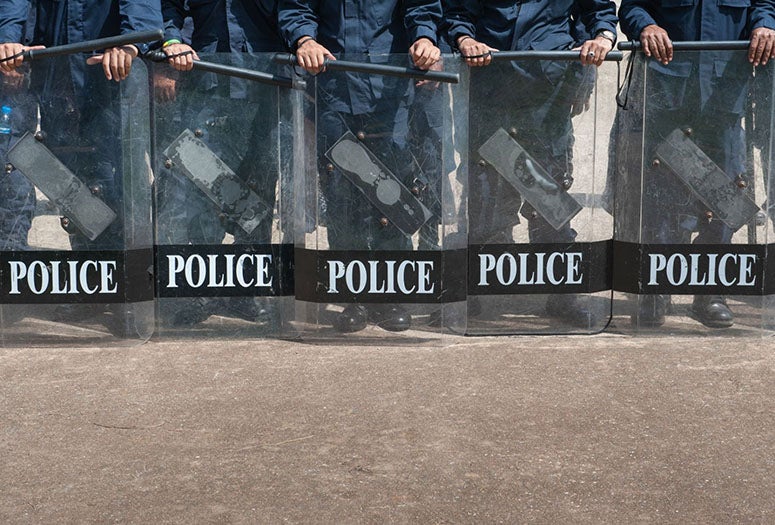Sending law enforcement officers into situations beyond their expertise – and asking them to do jobs more appropriate to other professions – contributes significantly to overpolicing in America, according to experts in a panel discussion hosted by Rice’s Baker Institute for Public Policy.
The future of policing was the subject of a Baker Institute’s Drug Policy Program webinar July 29 featuring Houston Police Chief Art Acevedo, Texas Rep. Nicole Collier and Rob Kenter, director of law enforcement field engagement at the Center for Policing Equity.
“Unfortunately, due to the murder of George Floyd, this is the opportunity that we have to make change — because there has been more conviction in the hearts of people that serve to make a difference,” Collier said.
All three panelists agreed a number of problems exacerbate overpolicing and lead to overburdened police forces.
“We’re asking them to be social workers on top of law enforcement officers,” Collier said.
Both Collier and Kenter called for allocating more police funding to disadvantaged communities and to other professions that can aid police in their mission.
“We’re not talking about taking cops off the street," Kenter added. "We’re talking about, when you call 911, the right person responds to your call for service. If you have a mental health issue, we’re going to get mental health people out there. If you’re a homeless person, we’re not going to send a cop. We’re going to send someone who can offer their services from the homelessness advocacy groups.”
Collier’s vision for the future includes reimagining police recruitment and training and a standard definition of “use of force.” The Texas Commission on Law Enforcement, she said, has already implemented an implicit bias training course that will likely be made a requirement during the state's next legislative session.
The panelists agreed government investment in health care, education and job opportunities can help reduce the policing burden. The Houston Police Department, for instance, has a mental health unit that sends civilian mental health providers to respond to such situations.
Acevedo said there’s now an opportunity to examine the entire criminal justice system.
“We have got to bring transparency not just to law enforcement — which is rightfully so the most scrutinized profession in the country, we should be — but we have to look at what’s going on with prosecutors and what’s going on with judges and what’s going on in the courthouses,” he said.
Acevedo also discussed the history of policing as an “arm of the government” — such as capturing runaway enslaved people or responding with violence to the civil rights movement of the 1960s.
“We don’t want law enforcement to become a tool again, like it has been used throughout history," he said. "We have to be thoughtful, we have to be comprehensive, we have to be evidence-based.”
Collier said better data, rather than the current "hodgepodge of information," is needed to make evidence-based policing decisions. Kenter said many police departments have old systems that don’t collect or provide enough data to be analyzed correctly.
“If we can measure it, we can fix it,” he said.
The Center for Policing Equity has partnered with over 25 police departments nationwide and holds the country's largest database on police behavior, including pedestrian stops, vehicle stops and use of force. The center analyzes the data and provides recommendations to departments.
Kenter argues that disbanding police departments would abandon communities. He said better data collection and analysis can lead to better strategies to reduce violent crime.
“(We have) got to get away from that 1990s ‘scorch the earth’ policing style, where you have a hot spot and you stop and frisk everyone you see,” Kenter said.
Kenter also said departments will be more efficient if they idenitify what “doesn’t belong to the police” and when other professions can take on appropriate work.
“You will see a big reduction in crime if you can pull that off,” he said.
The Drug Policy Program webinar was the second in a series of discussions on the criminal justice system, racial equity and public health offered in collaboration with the Baker Institute's Center for Health and Biosciences. The next session, titled "A Heavy Burden to Bear: The Impact of Mass Incarceration on Women," is Aug. 6.
-30-
Follow the Baker Institute on Twitter at @BakerInstitute and join the conversation online with the hashtag #BakerJustice.

